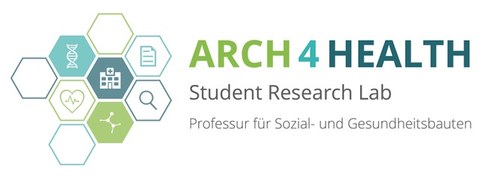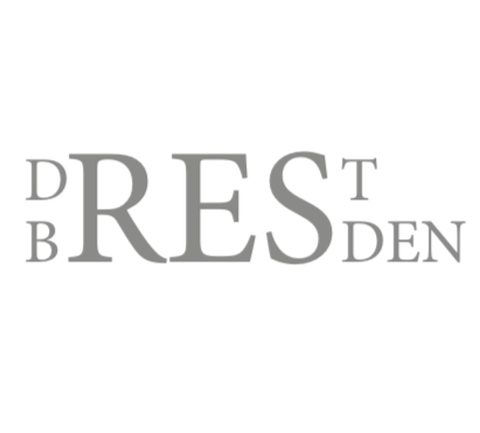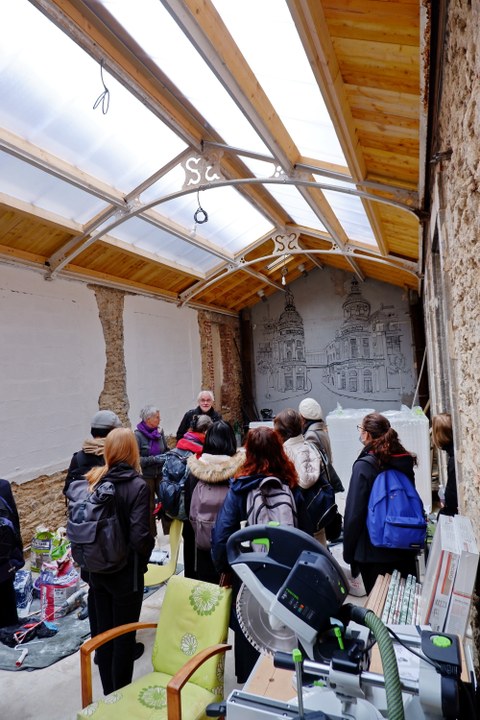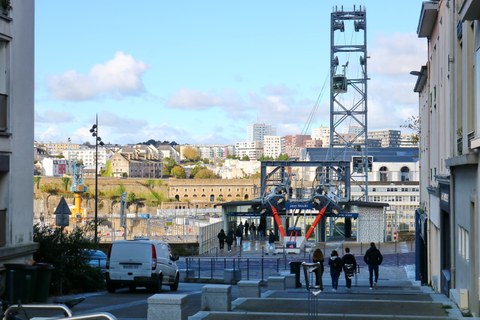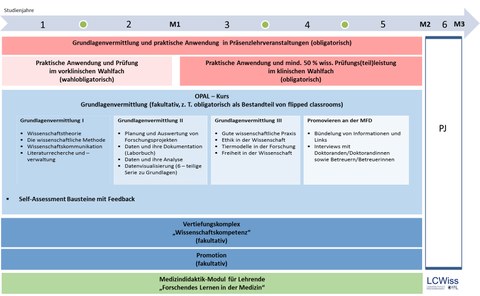Geförderte Lehr-Lernprojekte
Forschungsorientierte Projekte von Lehrenden
Im Rahmen des Projekts soll das Praktikum der Mess- und Automatisierungstechnik auf Heimversuche umgestellt werden. Grundlage dieser Versuche sind Arduino Datenerfassungsgeräte, die mittlerweile im wissenschaftlichen und technischen Bereich Standard für flexible Mess- und Steuerungsaufbauten sind. Die Studierenden erlernen daher zunächst grundsätzlich den Umgang mit einem modernen Datenerfassungssystem, das sie später in den großen Studienarbeiten, der Diplom- oder Bachelorarbeit, aber auch darüber hinaus in einer etwaigen Promotion oder im ingenieurtechnischen Alltag für unterschiedliche Messaufgaben einsetzen können.
Erweitert wird dieses System durch eine Anzahl unterschiedlicher Sensoren und Aktoren, mit denen verschiedene für das Praktikum notwendige Messaufgaben realisiert werden können. So werden Versuche zur Temperaturmessung, zur Erfassung der Dynamik von Messvorgängen und zur Regelung komplexer Bewegungsvorgänge realisiert, die den Stoff der Mess- und Automatisierungstechnik in die reale Welt überführen.
Ansprechperson: Prof. Dr. rer. nat. habil. Stefan Odenbach
Einrichtung: Professur Magnetofluiddynamik, Mess- und Automatisierungstechnik
FOSTER-Förderlinie: ENABLE2RESEARCH@TUD




![Rednerin am Pult vor Publikum. Foto wurde aus Perspektive der Teilnehmenden geschossen. Im Hintergrund ist die Präsentation sichtbar. Auf der Präsenation: "Weiblichkeit im Kontext der Entfremdungserfahrung am von Christoph He[..] Der fremde Freund"](https://tu-dresden.de/zill/ressourcen/bilder/foerdermittel/foster/projektbilder/horlacher/5-nwk.jpg/@@images/04494247-30f3-4b37-9707-0fef99858985.jpeg)
Der geförderte Sammelband beinhaltet die überarbeiteten Beiträge des 5. Dresdner Nachwuchskolloquiums zur Geschlechterforschung, das am 11.12.2019 an der TU Dresden stattgefunden und das die inzwischen vier Vorgängerprojekte fortgeführt hat. Ziel der Nachwuchskolloquien und Tagungsbände wie auch der intensiven Nachwuchsförderung ist es, herausragende Forschung zu ermöglichen und Studierenden zu ersten seriösen Publikationen zu verhelfen, der Geschlechterforschung an der TU Dresden Sichtbarkeit und Nachhaltigkeit zu verschaffen, Vernetzungen zu initiieren und eine exzellente intersektionale Geschlechterforschung zu ermöglichen. Der Band enthält neun Beiträge von Dresdner Nachwuchswissenschaftler:innen (zwei davon preisgekrönt) sowie zwei Beiträge von Studierenden der Universität Leipzig (Vernetzung).
Die redaktionellen Arbeiten wurden durch Gleichstellungsmittel unterstützt; durch FOSTER wurden die Druckkosten beim renommierten Leipziger Universitätsverlag finanziert.
Ansprechperson: Prof. Dr. phil. habil. Stefan Horlacher
Einrichtung: Professur für Englische Literaturwissenschaft
FOSTER-Förderlinie: STUDENTRESEARCH@TUD

© Lucas Klinkenbusch

© Lucas Klinkenbusch

© Lucas Klinkenbusch

© Lucas Klinkenbusch

© Lucas Klinkenbusch

© Lucas Klinkenbusch
Der Bausektor ist mit einem Anteil von über 50 % der weltweit mit Abstand größte Abfallproduzent. Neben der Belastung durch den erzeugten Müll ist die Herstellung und Verarbeitung von neuen Baumaterialien durch einen immensen CO2-Ausstoß ein bedeutender Treiber des globalen Klimawandels. Die Abkehr vom linearen Fertigungsprozess (Produktion-Verwendung-Entsorgung) hin zu zirkulären Materialkreisläufen ist daher erklärtes Ziel für ein zukunftsfähiges und nachhaltiges Bauen (UN Sustainable Development Goals 2025). In der Summer School sollen Möglichkeiten der Integration von solchen Materialkreisläufen in architektonische Planungs- und Bauprozesse am Fallbeispiel von „Urban Mining“ analysiert, konzipiert, erprobt und evaluiert werden. Schwerpunkt liegt dabei auf der Vermittlung und Anwendung von innovativen Forschungsprozessen für die Studierenden im Hinblick auf eine weiterführende eigenständige Bearbeitung. Langfristig soll die Summer School einen festen Platz im extracurricularen Bildungsangebot der TU Dresden einnehmen und stellt somit den Auftakt einer Bildungsreihe dar. Hauptvorteil des 14-tägigen Intensivprogramms ist eine außergewöhnlich tiefe und motivierte Auseinandersetzung der Teilnehmer:innen mit der Thematik, sowie das damit einhergehende umfassende Verständnis der angewendeten Methoden und Prinzipien. Die inhaltlichen, methodischen und didaktischen Ergebnisse der Summer School werden als fortlaufende Publikation veröffentlicht und ständig weiterentwickelt.
Mit den beantragten Mitteln werden Personal- und Honorarkosten sowie Sachmittel finanziert.
Ansprechperson: Julia Krafft, Lucas Klinkenbusch
Einrichtung: Professur für Gebäudelehre und Entwerfen: Grundlagen des Entwerfens, Fakultät Architektur
FOSTER-Förderlinie: ENABLE2RESEARCH@TUD
Mit dem beantragten Vorhaben werden zwei miteinander verknüpfte Forschungsseminare für Lehramtsstudierende im WiSe 21/22 sowie SoSe 22 umgesetzt und von einer WHK unterstützt. Ziel ist es, Lehramtsstudierenden eine praxis- und forschungsorientierte Lehramtsausbildung zu ermöglichen.
In den Seminaren wird eine Ist-Stand-Analyse zu kognitiven und sozialen Kompetenzen sowie Kontextbedingungen von Schüler:innen der Universitätsschule Dresden erstellt, um daran anknüpfend Forschungsfragen von Studierenden zu beantworten. Die Erhebungen und Analysen dienen gleichzeitig der wiss. Begleitung des Schulversuchs und unterstützen auch den Evaluationsauftrag der Schule sowie der Qualifikation der WHK und beteiligten wiss. Mitarbeiter:innen. Die Seminare werden im Bereich des Bildungswissenschaftlichen Moduls 6 sowie im Ergänzungsbereich für Lehramtsstudierende (GS-OS-GYM) angeboten. Die Studierenden können die Seminare 1- oder 2-semestrig begleiten und die Prüfungsleistung der jeweiligen Module ablegen. Darüber hinaus werden weitere Forschungsaktivitäten bspw. zur Anbahnung der wiss. Staatsexamensarbeit oder zur Veröffentlichung via Qucosa ermöglicht.
Die Besonderheit für die Studierenden besteht darin, an einem Schulversuch teilzunehmen, welcher innovative Formen des Lehrens und Lernens erprobt und in den wiss. Transferprozess eingebunden zu sein. Es werden Forschungsmethoden im zukünftigen Praxisfeld angewendet und Methoden erlernt, die für ihre Professionalisierung unabdingbar sind.
Über die Universitätsschule
Die Universitätsschule Dresden ist ein gemeinsames Projekt der Landeshauptstadt Dresden und der Technischen Universität. Sie ist eine öffentliche und kostenfreie Grund- und Oberschule in städtischer Trägerschaft, an der unter wissenschaftlicher Begleitung innovative Formen des Lehrens und Lernens erprobt werden. Darüber hinaus ist sie Ausbildungsschule für zukünftige Lehrkräfte und künftig auch Weiterbildungsschule für Lehrer:innen.

© Maria Völzer

© Mathias Böttinger

© Mathias Böttinger

© dpa

© TÜV SÜD Stiftung

© Michael Kretzschmar
Informationen zum Forschungsprojekt an der TU Dresden: https://tu-dresden.de/gsw/unischule
Informationen zur Universitätsschule Dresden: http://universitaetsschule.org
>> Projekt der Ausschreibung 2021 <<
Ansprechperson: Matthias Ritter
Einrichtung: Professur für Erziehungswissenschaft mit dem Schwerpunkt Inklusive Bildung
FOSTER-Förderlinie: ENABLE2RESEARCH@TUD
Im Schulversuch „Universitätsschule Dresden“ ist einerseits die Projektarbeit, als in der Erziehungswissenschaft legitimierter methodisch-didaktischer Zugang, pädagogischer Kern und andererseits das Projektmanagement Instrument, an dem die Organisationsstrukturen der Schule ausgerichtet sind (vgl. Langner & Koerber 2021).
Mein Dissertationsvorhaben „Lernen im Projekt auf Basis von Lernpfaden im Fach WTH/S“ untersucht Ablaufprozesse von Projekten an der Universitätsschule mit dem Ziel, Elemente zu identifizieren, die für die Regelschule implementierbar sind. Damit soll Projektarbeit als Zugang nutzbar gemacht werden, um individuellen Entwicklungswegen in kooperativen Prozessen zu entsprechen (vgl. Langner & Koerber 2021). Vor diesem Hintergrund entstand das Lehr-Lernprojekt „Lernen und Forschen im Projekt“, als zusätzliches Begleitungs- und Beratungsangebot für Studierende des Moduls „Situationsbezogenes Projekt“, in dem Studierende Teilforschungsfragen in diesem Kontext entlang von ihnen entwickelter Projektkonzepte für den Unterricht an der Unischule Dresden bearbeiten.
Die beantragte Förderung unterstützt und motiviert die Projektumsetzung der Studierenden und ermöglicht das Angebot, welches auf die Entwicklung von Kompetenzen wissenschaftlichen Arbeitens ausgerichtet ist. Langfristig leistet das Projekt damit einen Beitrag zur nachhaltigen inhaltlichen und didaktischen Weiterentwicklung der Lehramtsstudiengänge, im speziellen des Faches WTH/S.
>> Projekt der Ausschreibung 2021 <<
Ansprechperson: Karen Wittig
Einrichtung: Zentrum für Lehrerbildung, Schul- und Berufsbildungsforschung (ZLSB)
FOSTER-Förderlinie: ENABLE2RESEARCH@TUD
Die Forschung in den Ingenieurwissenschaften ist dadurch charakterisiert, dass Richtigkeit und Wahrhaftigkeit der Forschungsergebnisse unmittelbar mit realen Beispielen überprüft werden müssen. Die Forschungsthemen auf dem Fachgebiet Dynamik und Mechanismentechnik, wie z. B. aktuell „Flypulator“, „RopeBot“ oder auch „SFB/Transregio 96“ u. a., verlangen von den beteiligten Forschern fundierte theoretische Fachkenntnisse und gleichzeitig Kompetenz in der Messung-, Steuerungs- und Regelungstechnik.
Wegen der Komplexität des Fachgebietes benötigen die Studierenden eine multimodale Lehrmöglichkeit, um die komplexen und vielfältigen Akustik- und Schwingungsphänomene zu verstehen und zu erforschen. Dies ist nicht ohne umfangreiche wissenschaftliche und technische Unterstützung möglich. Mit dem beantragten „Ingenieurkoffer für Akustik- und Schwingungsanalyse“ sollen die Studierenden schrittweise an die studentische Forschung herangeführt werden. Sie bekommen die Möglichkeit, sich in Lehrveranstaltungen oder studentischen Projekten mit aktueller Forschung zu beschäftigen, sich an dieser aktiv zu beteiligen und sie gemeinsam mit ihren Betreuern inter- und transdisziplinär weiter zu entwickeln.
Die beantragte Technik kann langfristig in der Forschung und Lehre Anwendungen finden, auch die zukünftigen Studierenden können davon profitieren. Exzellenter wissenschaftlicher Nachwuchs kann so entdeckt, gewonnen und beizeiten gefördert werden.
>> Projekt der Ausschreibung 2021 <<
Ansprechperson: Prof. Dr.-Ing. Michael Beitelschmidt
Einrichtung: Institut für Festkörpermechanik
FOSTER Förderlinie: ENABLE2RESEARCH@TUD
Der Bausektor ist mit einem Anteil von über 50 Prozent der weltweit mit Abstand größte Abfallproduzent. Neben der Belastung durch den erzeugten Müll ist der Herstellung und Verarbeitung von neuen Baumaterialien durch einen immensen CO2-Ausstoß ein bedeutender Treiber des globalen Klimawandels. Die Abkehr vom linearen Fertigungsprozess (Produktion-Verwendung-Entsorgung) hin zu zirkulären Materialkreisläufen ist daher erklärtes Ziel für ein zukunftsfähiges und nachhaltiges Bauen (UN Sustainable Development Goals 2025).
Im Format „ShelterLAB“ sollen Möglichkeiten der Integration von solchen Materialkreisläufen in architektonische Planungs- und Bauprozesse am Fallbeispiel von „Urban Mining“ analysiert, konzipiert, erprobt und evaluiert werden. Schwerpunkt liegt dabei auf der Vermittlung und Anwendung von innovativen Forschungsprozessen für die Studierenden im Hinblick auf eine weiterführende eigenständige Bearbeitung.
Das Shelter Lab findet einmal pro Semester als extracurriculare Erweiterung des Studienangebots statt. Hauptvorteil des Intensivworkshops ist eine außergewöhnlich tiefe und motivierte Auseinandersetzung der Teilnehmer*innen mit der Thematik, sowie das damit einhergehende umfassende Verständnis der angewendeten Methoden und Prinzipien. Die inhaltlichen, methodischen und didaktischen Ergebnisse des ShelterLAB werden als fortlaufende jährliche Publikation veröffentlicht und ständig weiterentwickelt.
>> Projekt der Ausschreibung 2021 <<
Ansprechpersonen: Julia Krafft, Lukas Klinkenbusch
Einrichtung: Fakultät Architektur
FOSTER-Förderlinie: ENABLE2RESEARCH@TUD
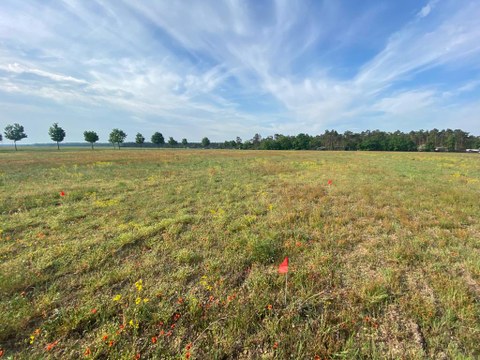
Pflanzenkartierungen in der Modellregion Nordwestsachsen.
Der Biodiversitätsverlust in Agrarlandschaften schreitet seit vielen Jahren, auch in Deutschland, voran. Frau Dr. Hölting versucht dem entgegen zu wirken, indem sie Studierenden der Geografie in diesem Projekt Artkenntnisse und praktisches Wissen zum Umgang mit innovativen Methoden des Biodiversitätsmonitoring vermittelt. Um die Effektivität und Praktikabilität von Monitoring-Systemen und Maßnahmen zum Erhalt von Biodiversität zu verbessern, wird verstärkt mit Landwirt:innen und Naturschutzverbänden transdisziplinär zusammengearbeitet.
Ziel dieses Forschungsprojekts ist es, das Vorkommen verschiedener Artgruppen (Vögel, Pflanzen, Insekten, Säugetiere) in Landschaften mit unterschiedlicher Landnutzungsintensität und Strukturvielfalt zu untersuchen. Dies ermöglicht eine Bewertung von Naturschutzmaßnahmen für mehrere taxonomische Gruppen im jeweiligen Landschaftskontext.
Die Studierenden werten die selbst erhobenen Daten mit den Betreuenden aus. Durch die Einbindung in das Forschungsprojekt ECO²SCAPE Projekts bekommen die Studierenden umfangreiche Einblicke in Arten der Kommunikation und Kooperation in einem inter- und transdisziplinären Forschungsprojekt und können ihre Ergebnisse in einem gemeinsamen Workshop mit dem Landschaftspflegeverband Nordwestsachsen e.V. diskutieren.
>> Projekt der Ausschreibung 2022 <<
Ansprechperson: Dr. Lisanne Hölting
Link zu Dr. Höltings Website
Weitere Ansprechperson: Julian Wendler
Link zu Herr Wendlers Website
Beteiligte Projektpartner: Landschaftspflegeverband Nordwestsachsen e.V., Biosphärenreservat Oberlausitzer Heide und Teichlandschaft
Einrichtung: Professur für Modellbasierte Landschaftsökologie
FOSTER-Förderlinie: Enable2Research
Die Förderung des ARCH4HEALTH Student Research Lab ist dreiteilig. Im WiSe 2021/22 nahmen erstmalig Studierende der TU Dresden am ARCH4HEALTH Student Research Lab zum Thema "Notaufnahme" teil. Dieses Vorhaben konnte im SoSe 2022 zum Thema "Einrichtungen der Strahlentherapie" und im WiSe 2022/23 zum Thema "Leit- und Orientierungssysteme, insbesondere im Schulwesen" weitergeführt werden.
Im ARCH4HEALTH Student Research Lab durchliefen die Studierenden in eigenen Projekten den gesamten Forschungsprozess. Ziel der Vorhaben war es, die Ergebnisse der studentischen Forschungsprojekte sichtbar zu machen - zum einen durch die Publikation eines Sammelbandes und zum anderen durch eine Poster Session mit geladenen Gästen.
Der Mehrwert des Projekts bestand in dem Austausch mit der Praxis der durch die Veröffentlichung der studentischen Forschungsprojekte entstanden war. Die Poster Session mit externen Gästen aus der Praxis war eine wertvolle Erfahrung für die Studierenden, um die eigenen Forschungsergebnisse in den breiteren Kontext zu setzen und Feedback zum Forschungsprozess zu erhalten. Zudem konnte das Lehr-Team wertvolle Kontakte zu Akteurinnen und Akteuren im Gesundheitswesen in Dresden knüpfen und diese im folgenden Semester nutzen. Durch die entstandenen Kontakte konnte eine Besichtigung eines Krankenhauses für die Studierenden organisiert werden und es ergaben sich wichtige Möglichkeiten zur Datenerhebung für einige Studierenden.
FOSTER förderte die Publikation und Poster Session der Ergebnisse des ARCH4HEALTH Student Research Lab.
Ansprechpersonen: Kathrin Büter, Carolina Kolodziej und Anne-Sophie Schoß
Einrichtung: Professur für Sozial- und Gesundheitsbauten
FOSTER-Förderlinie: Enable2Research & STUDENTRESEARCH@TUD
Im Rahmen eines einwöchigen Austauschs mit der Universität Brest in Frankreich wurde ein längerfristiger Dialog über stadt- und architekturgeschichtliche Forschung zu beiden "Wiederaufbaustädten" initiiert, begleitet von Tagungen und Workshops. Schwerpunkte waren:
• Stadtidentität,
• Umgang mit dem baulichen Erbe,
• Leitbilder der Gestaltung der baulichen Umwelt.
Von Wissenschaftler:innen angeleitet, bekamen die Studierenden die Möglichkeit, sich mit der Architektur und dem Städtebau vor Ort auseinanderzusetzen. In dem mehrjährigen Kooperationsprojekt ging es letztlich um eine vergleichende Betrachtung der im 2. Weltkrieg stark zerstörten Städte Brest und Dresden. Von Seiten der Fakultät Architektur wurde dazu ein institutsübergreifendes Lehrpaket angeboten: ein baugeschichtliches Seminar, ein Entwurf (Städtebau / Denkmalpflege) und ein gestalterisch-analytisches Projekt (z. B. Architekturfotografie). Dabei stand das breite Methodenspektrum der Architekturforschung im Mittelpunkt.
Ansprechperson: Hans-Georg Lippert
Einrichtung: Fakultät Architektur, Institut für Baugeschichte, Architekturtheorie und Denkmalpflege
FOSTER-Förderlinie: ENABLE2RESEARCH@TUD
Ziel des Projektes ist der Aufbau und die Durchführung einer bereichsübergreifenden Summerschool, die sich mit dem interdisziplinären Einsatz von Virtual and Augmented Reality (VR/AR) beschäftigt.
Vorbereitet wird die Summerschool von Promovierenden verschiedener Fachbereiche, die anschließend für die Wissensvermittlung verantwortlich sind. Zielgruppe sind Studierende der Bereiche Medizin, Ingenieurwissenschaften und Bauen und Umwelt, die Kernkompetenzen zu VR und AR aus Modulen des Vertiefungsstudiums einbringen.
Forschungsprojekte aller beteiligten Bereiche bilden das Fundament der Kompetenzvermittlung.
Alle Teilnehmenden erlernen in eigenständiger Arbeit eine „gemeinsame Sprache“, die es ermöglicht, Nutzeranforderungen zur Ausgestaltung digitaler Arbeitswelten zu kommunizieren. Die Teilnehmenden werden für die Besonderheiten und die Schnittstellen zwischen den Fachbereichen sensibilisiert. Als Ergebnis steht ein virtuelles Krankenzimmer zum weiteren Kompetenzerwerb zur Verfügung. Im Anschluss der Summerschool sind die Teilnehmenden befähigt, in ihrer späteren Karriere zielgerichtet interdisziplinäre Forschungsprojekte zu imitieren und durchzuführen.
Weitere Informationen gibt es auf der Homepage der Summerschool.
>> Projekt der Ausschreibung 2022 <<
Kontaktpersonen: Dr. Doreen Pretze [1], Marie-Christin Willemer [1], Prof. Karsten Menzel [2], Dr. Bernhard Saske [3], Prof. Kristin Paetzold [3]
Einrichtung: [1] Medizin, [2] Bauinformatik [3] Virtuelle Produktentwicklung
FOSTER-Förderlinie: ENABLE2RESEARCH@TUD
Das Wissen in der Medizin erweitert sich permanent, ebenso wie diagnostische und therapeutische Möglichkeiten. Ärztinnen und Ärzte sollten daher eine positive Grundhaltung zur Wissenschaft und zum lebenslangen Lernen haben sowie über Kompetenzen verfügen, um neue wissenschaftliche Erkenntnisse kritisch einzuordnen. Die dafür notwendige wissenschaftliche Grundlagenausbildung während des Studiums wird momentan als nicht ausreichend angesehen und eine Promotion ist nicht verpflichtend zu absolvieren.
Dies aufgreifend wird aktuell ein modular aufgebautes Longitudinales Curriculum zur Wissenschaftskompetenz (LCWiss) an der Medizinischen Fakultät konzeptioniert. Leitendes didaktisches Prinzip ist das forschende Lernen. Ziel des beantragten Projekts ist die Umsetzung weiterer Maßnahmen, die langfristig die wissenschaftliche Ausbildung der Medizinstudierenden verbessern soll:
1. Curriculares Mapping zur Weiterwicklung von LCWiss
2. Integration von Aspekten forschenden Lernens in bestehende Lehrveranstaltungen
3. Aufbau eines Angebots mit Schwerpunkt Wissenschaftskompetenz zur studentischen Neigungsförderung
4. Ausbau des LCWiss OPAL-Kurses und Erstellung von self-Assessment Bausteinen zur Unterstützung des selbstorganisierten Lernens
Die Maßnahmen werden gemeinsam mit Medizinstudierenden umgesetzt, um bedarfsorientierte Angebote zu entwickeln. Eine begleitende Evaluation soll die nachhaltige Weiterentwicklung von LCWiss sichern.
Kontaktperson: Dr. rer. nat. Lydia Günther
Einrichtung: Fakultät Medizin
FOSTER-Förderlinie: Forschungsorientierte Lehr-Lern-Aktivitäten (FoLLA) | ENABLE2RESEARCH
Die Summerschool ist das erste TU-übergreifende Projekt eines Zusammenschlusses von mehreren VR-Arbeitsgruppen. Es dient als Pilotierung dieses Netzwerkes und könnte bei positiver Evaluation in Zukunft auch auf andere Fachgebiete ausgeweitet werden bzw. Anreize für weitere Zusammenarbeiten darstellen.
Ziel des Projektes ist der Aufbau und die Durchführung einer bereichsübergreifenden Summerschool, die sich mit dem interdisziplinären Einsatz von Virtual and Augmented Reality (VR/AR) beschäftigt.
Vorbereitet wird die Summerschool von Promovierenden verschiedener Fachbereiche, die anschließend für die Wissensvermittlung verantwortlich sind. Zielgruppe sind Studierende der Bereiche Medizin, Ingenieurwissenschaften und Bauen und Umwelt, die Kernkompetenzen zu VR und AR aus Modulen des Vertiefungsstudiums einbringen.
Forschungsprojekte aller beteiligten Bereiche bilden das Fundament der Kompetenzvermittlung. Das Carus Lehrzentrum ist mit dem Teilprojekt HybParc Partner im Projekt virTUos. Die Professur für Virtuelle Produktentwicklung arbeitet an medizinischen Forschungsprojekten wie Smaffold oder OptiKneBM und das Institut für Bauinformatik entwickelt im Verbundprojekt iECO cloud-basierte Lösungen zum Building Information Modelling.
Alle Teilnehmenden erlernen in eigenständiger Arbeit eine „gemeinsame Sprache“, die es ermöglicht Nutzeranforderungen zur Ausgestaltung digitaler Arbeitswelten zu kommunizieren. Die Teilnehmenden werden für die Besonderheiten und die Schnittstellen zwischen den Fachbereichen sensibilisiert. Als Ergebnis steht ein virtuelles Krankenzimmer zum weiteren Kompetenzerwerb zur Verfügung. Im Anschluss der Summerschool sind die Teilnehmenden befähigt in Ihrer späteren Karriere zielgerichtet interdisziplinäre Forschungsprojekte zu imitieren und durchzuführen.
Kontaktperson: Dr. Doreen Pretze [1], Marie-Christin Willemer [1], Prof. Karsten Menzel [2], Dr. Bernhard Saske [3], Prof. Kristin Paetzold [3]
Einrichtung: [1] Medizin, [2] Bauinformatik [3] Virtuelle Produktentwicklung
FOSTER-Förderlinie: Forschungsorientierte Lehr-Lern-Aktivitäten (FoLLA) | ENABLE2RESEARCH
Das forschungsorientierte Lehr-Lern-Projekt „Lebenslanges Lernen: Sozial-ökologischer Transformation begegnen“ befasst sich mit der Entwicklung von möglichen Strategien in einem grundlegenden sozial-ökologischen Wandel. Bildung wird dabei als Schlüssel angesehen, um aus gesellschaftlicher Perspektive Veränderungsprozesse hin zu einer nachhaltigen Welt aktiv mitzugestalten. Die Studierenden werden entlang der Grundideen des lebenslangen Lernens (LLL) und der Bildung für nachhaltige Entwicklung (BNE) Konzepte in verschiedenen Forschungs- und Bildungsformaten entwickeln. Im Vordergrund stehen die Förderung kritischen Denkens, die Ausbildung pädagogischer Professionalität und die Erweiterung von Handlungskompetenz. Weiterhin geht es um die Förderung und Erweiterung von Gestaltungskompetenz (de Haan 2008; BMBF 2021) als wesentlichem Element einer ganzheitlich zu verstehenden BNE. Der Forschungsfokus liegt auf konkreten Bildungseinrichtungen in Dresden, wie der Technischen Universität sowie auf informellen Bildungsorten, wie Museen oder Vereine.
De Haan, G., et al. (2008). Nachhaltigkeit und Gerechtigkeit. Grundlagen und schulpraktische Konsequenzen. Springer.
Ansprechperson: Jun.-Prof. Maria Kondratjuk
Einrichtung: Fakultät Erziehungswissenschaften, Institut für Berufspädagogik und berufliche Didaktiken, Juniorprofessur für Organisationsentwicklung im Bildungssystem
FOSTER-Förderlinie: ENABLE2RESEARCH
Das Ziel des Vorhabens von Herrn Ritter, Frau Nowak und Frau Bartels ist es, ein Forschungskolloquium für Lehramtsstudierende (FKL) auf Peer-Ebene an der TU Dresden zu etablieren, welches die Studierenden während der Erstellung von wissenschaftlichen Staatsexamensarbeiten, insbesondere empirischer Arbeiten, unterstützt.
Auf diesem Wege soll die Qualität von empirischen Abschlussarbeiten abgesichert und eine praktische Einarbeitung in Forschungs- und Interpretationsverfahren ermöglicht werden. Nicht zuletzt soll das FKL den Studierenden die Möglichkeit bieten sich über Herausforderungen auszutauschen und diese so u.a. auch emotional zu entlasten. Das FKL ermöglicht es Studierenden, eine Affinität für Forschung und empirisches Arbeiten zu entwickeln und trägt somit zur wissenschaftlichen Nachwuchsförderung bei. Neben einer höheren Qualität von Abschlussarbeiten bei Lehramtsstudierenden bietet dieses Format insbesondere Vorteile für angegliederte Projektvorhaben, in dessen Rahmen Staatsexamensarbeiten geschrieben werden. Somit kann studentische Forschung einen Beitrag zum Erfolg von Forschungsvorhaben leisten.
Ansprechpersonen: Dr. Matthias Ritter, Julia Nowak und Hannah Bartels
EInrichtung: Institut für Erziehungswissenschaften
FOSTER-Förderlinie: Forschungsorientierte Lehr-Lern-Aktivitäten (FoLLA) | ENABLE2RESEARCH
FOSTER wird vom Bundesministerium für Bildung und Forschung (BMBF) und dem Freistaat Sachsen im Rahmen der Exzellenzstrategie von Bund und Ländern gefördert.




![Rednerin am Pult vor Publikum. Foto wurde aus Perspektive der Teilnehmenden geschossen. Im Hintergrund ist die Präsentation sichtbar. Auf der Präsenation: "Weiblichkeit im Kontext der Entfremdungserfahrung am von Christoph He[..] Der fremde Freund"](https://tu-dresden.de/zill/ressourcen/bilder/foerdermittel/foster/projektbilder/horlacher/5-nwk.jpg/@@images/dc6a30d7-6bff-4869-ad5c-f46cef810464.jpeg)












